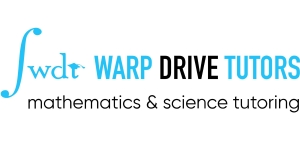MYP Mathematics
Some Basics:
The MYP is the IBO’s Middle Years Programme and it is a framework of study for students aged 11-16. It is designed so that it can be taught alongside local or national curricula, and – like the IB® Diploma Programme – requires students to study a range of disciplines, including Mathematics.
Students are assessed against four criteria: A – knowing and understanding; B – investigating patterns; C – communicating; D – applying mathematics in real-life contexts. The course may be assessed entirely within the student’s school via a series of assessments throughout the course, or alternatively, schools may opt to have student grades certificated by entering students for eAssessment, a 2-hour long end-of-course online examination.
Students may also be assessed at Standard Level or Extended Level. Those looking to take IB® Maths HL as part of the Diploma programme usually follow the extended course.
Course content:
The IB® provides an outline framework of content to be covered, though schools may vary this in line with local or national standards.
The recommended content is divided into four categories:
- Numerical and abstract reasoning
- Thinking with models
- Spatial reasoning
- Reasoning with data
Topics covered usually include
- Numerical and abstract reasoning
- Numerical operations
- Accuracy, approximation, error and estimation
- Measurement
- Proportion, fractions, ratio and percentage
- Equations and expressions
- Thinking with models
- Functions
- Algorithms
- Modelling
- Spatial reasoning
- Graphing
- Geometry
- Trigonometry
- Reasoning with data
- Randomness
- Correlation
- Inference
- Outliers
- Distribution
- Probability
Typical problem areas include:
- Criterion A: Knowing and understanding
- Arithmetic and geometric sequences and series
- Quadratic equations
- Functions
- Graph transformations
- 3D trigonometry
- Proportionality
- Criterion B: Investigating patterns
- Understanding the cycle of investigation to identify, describe, predict and justify.
- Learning how to organise information to find relationships
- Verifying predictions and presenting conclusions clearly
- Criterion C: Communication
- Using notation appropriately to support investigative work
- Moving between different forms of representation
- Communicating via coherent and clear arguments
- Organising answers logically
- Criterion D: Applying mathematics in real-life contexts
- Finding important information in a question
- Applying mathematical strategies to real-life problems
- Forming a model from given information
- Reflecting on solutions in context
- Giving solutions to an appropriate degree of accuracy.
How a tutor can help:
One of the great strengths of MYP maths is that it assesses students on a number of different skills. Depending on the student’s needs, tutors will be able to complement support on a topic-by-topic basis – addressing areas of weakness against criterion A (Knowing and Understanding) whilst also building problems and skills into real-world contexts – and hence developing skills for criterion D. One-to-one tuition provides unparalleled opportunities for feedback on written work and notation, areas which often hold students back in their criterion C marks. Equally, the strong emphasis on concepts within the MYP classroom sometimes leaves students with a shortage of practical experience of repetitive skills-based questions. Weekly sessions with a tutor can help provide the additional practice needed to ensure that students consolidate technique as they progress.
Criteria A, C and D skills can be developed successfully hand-in-hand; our tutors – all of whom are full time maths teachers – are adept at finding or creating rich real-life problems which enable students to explore the applications of mathematics in varied ways.
Many students find Criterion B, investigation, a real challenge: they are unsure what information to collect, how to organise it, and what to look for. Our classroom teaching experience has clearly shown us that students can learn investigative skills just as they acquire mathematical knowledge, and we help students learn how to form conjectures, gather data, test their ideas and refine their models. An emphasis on rigor ensures that students will leave MYP maths with the skills that they need to tackle 16-18 mathematics courses, including the IB® Diploma Programme.
